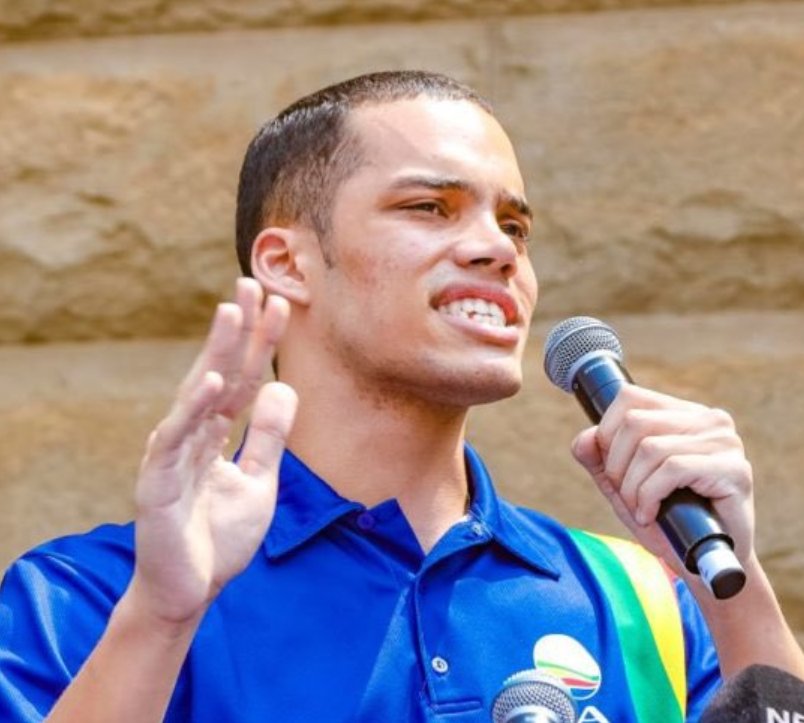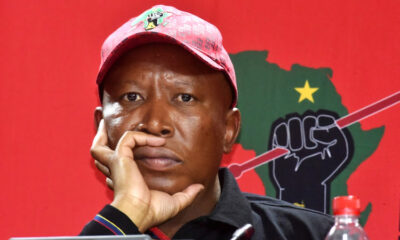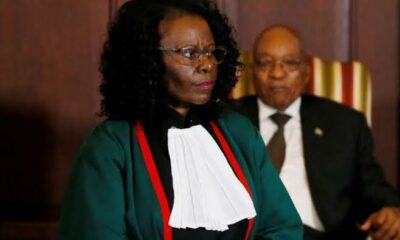News
Liam Jacobs Jumps Ship: A Dance of Defection and Identity in South African Politics

Young MP’s move to the Patriotic Alliance ignites debate on coloured identity, representation, and the DA’s blind spots.
In a political twist that felt more like a scene from a soap opera than a parliamentary career move, 24-year-old Liam Jacobs, until recently one of the Democratic Alliance’s youngest MPs – left the party in spectacular fashion this past weekend. And not quietly either.
There he was, joyously dancing under the green and gold banner of the Patriotic Alliance (PA), declaring he had come “home” to Gayton McKenzie’s party. This, barely days after a scathing exchange between the two during a parliamentary portfolio committee meeting on Sport, Arts and Culture.
If the whole saga feels bizarre, that’s because it is.
From clash to embrace: A strange political romance
Just last week, McKenzie was publicly dressing down Jacobs, calling him “disrespectful” and accusing the DA of “weaponising” him in a political vendetta. The minister even implied Jacobs was being fed scripted questions to take jabs at the PA.
But fast forward a few days, and the pair were embracing like long-lost comrades. McKenzie’s claim that Jacobs had been manipulated by the DA seemed to fade into the background. Instead, a narrative of “coming home” was pushed – one that leaned heavily into identity.
Because make no mistake, identity is the heartbeat of this move.
Coloured identity, ignored representation
Jacobs’ defection to the PA – a party that unapologetically draws support from South Africa’s coloured communities – sends a signal. And DA federal chair Helen Zille will no doubt read it loud and clear.
The DA’s base in the Western Cape is largely coloured, but as McKenzie pointed out during their spat, the party has not elevated a single coloured leader to a ministerial post in the new government of national unity. That’s a sore point, and one the PA has capitalised on.
For Zille, this reeks of identity politics. For McKenzie, it’s about justice and recognition.
Who’s right?
Well, it’s complicated.
Is identity politics always a dirty word?
Zille has long warned of identity politics tearing the country apart, accusing the PA and MK Party of using racial identity to amass support while excluding others. But in a nation scarred by apartheid’s racial engineering, ignoring identity isn’t just naïve , it can be dangerous.
Historically, identity politics has been a double-edged sword in South Africa. It can empower marginalised communities, creating space for voices long excluded from mainstream politics. But if used purely to gatekeep power or sow division, it starts resembling the very ideologies we claim to have buried in 1994.
Jacobs says he joined the PA because he felt truly seen. If his defection is driven by a sincere belief in better representation for coloured people, then it deserves consideration. If it’s just a reaction to being overlooked by the DA or a move for personal gain, it’s a different story.
Let’s not forget the DA’s own identity contradictions
It’s also worth remembering: the DA isn’t immune to identity politics. In fact, its early foundations were about safeguarding a specific (mostly white) group’s economic interests during the democratic transition. Over time, it’s tried to diversify its image, but gaps remain – especially when it comes to reflecting the diversity of its support base in its leadership.
So while the DA may critique the PA for racial messaging, it must also interrogate its own track record of inclusion – not just symbolically, but in real leadership terms.
Public reaction: A mixed bag of praise and scepticism
On social media, Jacobs’ defection has sparked passionate debate. Some praised him for “finding his roots” and embracing a party that “truly represents his community.” Others were more cynical, calling it opportunism or accusing him of being a pawn in McKenzie’s political game.
One X user wrote, “From being called a puppet to dancing like a champion – politics is a strange place.” Another quipped, “DA can’t keep complaining about identity politics when they keep ignoring the identity of their own voters.”
What the defection teaches us
Liam Jacobs’ move may seem like youthful political restlessness, but it shines a spotlight on a deeper tension in South African politics: the struggle to balance inclusive representation with non-racial ideals.
Our political future doesn’t lie in pretending race and identity don’t matter. It lies in ensuring that identity is used to foster inclusion, not division.
South Africa’s sports teams have proven that diversity done right delivers excellence. Politics – and business – would do well to take notes.
Because if young leaders like Jacobs are walking away not just from parties, but from feeling unseen, we all need to ask: who are we building this democracy for?
Not just a defection, but a mirror
Jacobs’ floor-crossing moment is more than just another party switch. It’s a mirror held up to South Africa’s democracy, challenging our political parties to reflect on who they serve and how.
In the end, it’s not about which party wins him over. It’s about whether anyone is truly listening.
{Source: The Citizen}
Follow Joburg ETC on Facebook, Twitter , TikTok and Instagram
For more News in Johannesburg, visit joburgetc.com



























